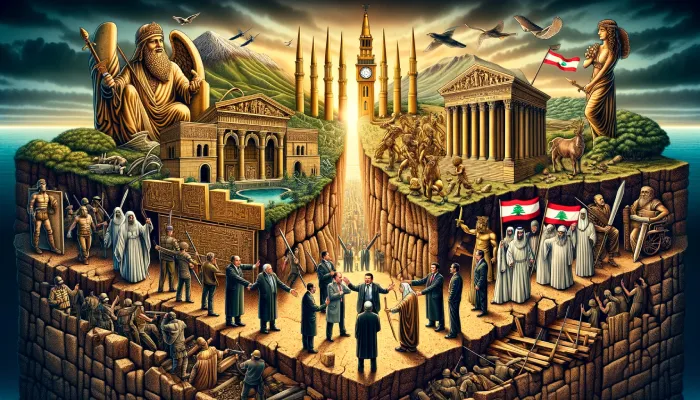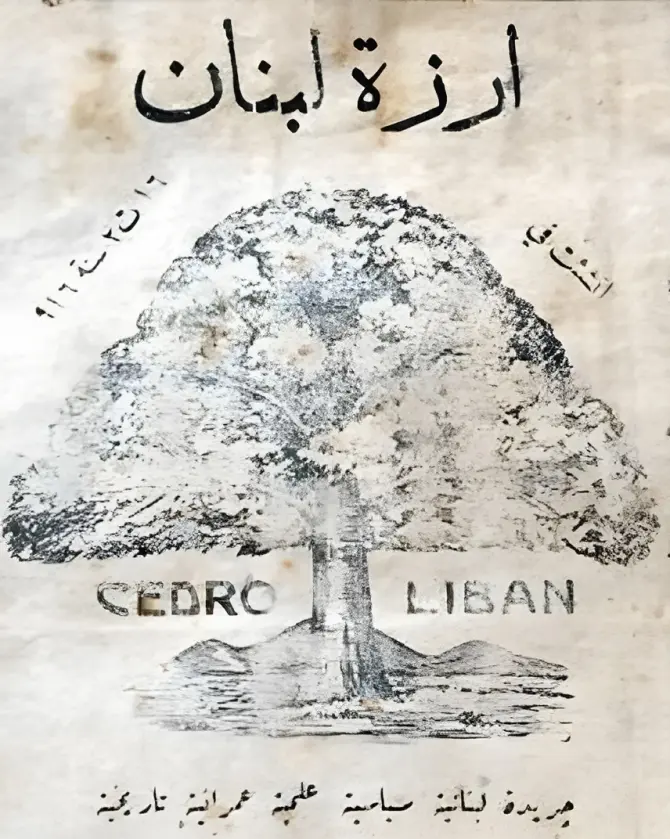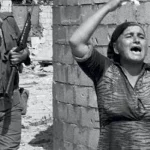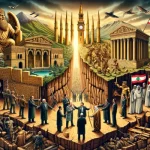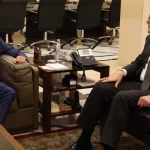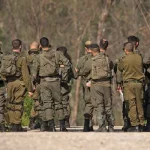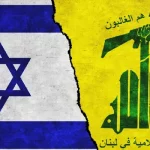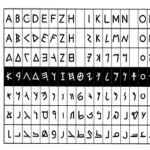Lebanon is ruled by a religious Mafia that either is itself involved directly in politics or operates like a puppeteer handling subservient puppet politicians. If you watch the
political process in the media, you will see more men in robes, beards and strange
headgear than men or women in normal professional attire. The Shiite sect is run
directly by mullahs, imams or other clergymen, with a handful of civilian hacks
posturing as politicians (MPs, ministers, etc.). Other sects, like the Sunnis and the
Maronites, act behind a façade of civilian ministers, party leaders or MPs, none of
whom ever dares to challenge the authority of patriarchs, muftis, bishops and other
clergymen in setting policies for the sect. With the Lebanese state in total collapse, the
men in robes no longer hide behind their bonded politicians; they themselves become
the political leaders who directly steer the politics of their respective sects on issues of
national importance.
This is the multi-sectarian organization that divides the country into religious
concentration camps in which the individual is trapped within his/her community and
has no value or rights except to serve as a faceless member of a herd. While sects claim
the freedom to worship without restrictions imposed by the other sects, individuals
within each sect have no freedom. A Lebanese Christian claims to be free because he
can ring his church bell on Sundays without the Muslims prohibiting him from doing so.
That is the extent of freedom as it is practiced in Lebanon. It is always in reaction or
opposition to the other communities. I call this “communitarian freedom”. Within any
given community, there is no individual freedom as it is understood in genuinely
democratic systems: A Maronite individual cannot openly challenge or criticize the
Maronite Church, just as a Sunni Muslim would be well-advised not to openly criticize
the Grand Mufti of the Republic.
The Lebanese confessional or sectarian system of government, disguised under the
pernicious filth of “consensual democracy”, grants rights to religious sects, but not to
individuals within those sects. All of Lebanon’s current problems are due to
disagreements between the sects, not between individual members of those sects. The
fallacy of “consensual democracy” is exactly the problem facing the country today in
the inability of Parliament to elect a president. One of the essential elements of a
democracy is that it provides for resolving differences through voting, and the winner
moves forward to form a government or pass a law while the loser becomes the
opposition that tries to improve its standing until the next vote or elections. In Lebanon,
however, differences always end up in a stalemate. When faced with a vote or an
election, the party that suspects it might lose does everything it can to block or obstruct
the vote or the constitutional process under the pretense that it wants dialogue and
consensus.
By dialogue and consensus, the political and religious parties, regardless of the wishes
of their constituents, meet in backrooms away from public scrutiny, make deals that
often involve mutual concessions and payolas, and reach an agreement which is then
ratified by a cosmetic vote in Parliament, thus bypassing the constitutional process.
Since the last exercise of real democracy in 1970 for presidential elections and 1972 for
legislative elections, all elections and votes have in fact been fake and for show, since
they were always overridden by consensus, deals, and impositions by occupying
countries like Syria and Israel and their American and Arab backers. In other words,
“consensual democracy” has replaced the genuine democracy that Lebanon had
practiced in the early decades of its existence.
For the most part, genuine democracy was practiced when the Christians had a bigger
say in government (1943-1976), while the fallacy of consensual democracy took hold
when Muslims grabbed power thanks to Palestinian terrorism and the Syrian invasion
and occupation, followed by the 1989 Taef Agreement sponsored by an unnatural
coalition between the self-declared beacon of democracy, the United States, and the
authoritarian absolutist Saudi monarchy. In that agreement, power was snatched from
the Christians and handed to the Muslims who proceeded to mutilate genuine
democracy and convert it into “consensual democracy”. Successive US republican
administrations since Nixon have kissed the oily behinds of the Arab dictatorships after
the Arab oil embargo of 1973. By sacrificing and backstabbing every other minority in
the region (Kurds, Maronites, Copts, Yazidis, Armenians, etc.) in exchange for cheap
Arab oil, the Americans and the West enabled those same Arab dictatorships to dispatch
terror groups and radical imams, and build mosques and madrassas right in the heart of
Western capitals whence they proceeded to undermine and attack the West.
Why pretend to have a democracy? Why have elections and votes? Why even have a
constitution and laws? Why not go back to a primitive form of government in which the
religious bosses of the sects regularly meet and enact laws that suit their objectives
without taking into account their people’s wishes? This is how the mullahs of the
Taliban rule in Afghanistan. This is how the ayatollahs rule in Iran. These are the forms
of government in which people are infantilized as ignorant of their interests, and only
the religious dinosaur in power knows what is best because he, and only he, understands
the will of God as stated in dubious fictional parchments and scrolls written thousands
of years ago.
In a country like Lebanon with a diverse population and a myriad of sects, the problem
is compounded by the co-existence of multiple Mafia bosses. In Iran, there is one boss,
the Ayatollah. In Afghanistan, the chief Mullah runs the show. In Lebanon, with its 18
religious denominations recognized by the constitution, the authoritative power of one
religious boss is distributed across several bosses, which makes reaching a consensus virtually impossible. Having one dictator may facilitate decision-making regardless of
the merits of the decisions, but having several competing dictators is a recipe for hellish
indecision. That is why reform is impossible in Lebanon as it exists today.
When the religious bosses disagree among each other, they wage wars in which
hundreds of thousands of people die. And they convince their people that their death
(sacrifice, martyrdom, etc.) is part of asserting God’s will. The status of a victim of war
and crime is idealized to that of a martyr for the cause. That is what the Christian
Church did in its early years: It created the myth of the “martyr” which makes saints out
of suicidal rebels just as Islam does today: from the poor driver who gets killed in a car
accident to the religious terrorist who blows himself up, they are all “martyrs” on an
express lane to heaven. The words “killed” or “dead” have been replaced with
“martyred”
When the bosses agree, they act jointly to keep their respective herds in tow and the
existing system in place. On questions of the civil status, religious laws and courts
override civilian laws and courts. Inheritance, marriage, divorce, births and deaths… are
all the purview of the religious authorities who engage in all manner of discrimination,
abuse and corruption, especially against women. Lebanese women who marry foreign
men cannot grant their children the Lebanese nationality. If a Lebanese woman dies
without a direct male relative (brother, son, husband), it is virtually impossible to
declare and register her death. I personally was unable to register my maternal aunt’s
death because she had no brothers, wasn’t married (no husband) and had no children, let
alone male ones. I, as her closest male next-of-kin, could not officially declare her
death, and I had to resort to “wasta” (personal connections) and a courageous
“moukhtar” (local selectman) willing to bend the law to issue a death certificate.
Over the past few decades, people – overwhelmingly young people – have been
demanding civilian laws for the personal status, as for example civilian marriage. Right
now, Lebanese couples cannot marry before a judge; they have to be married by a priest,
an imam, a sheikh, etc. The irony is that if a couple travels abroad and gets married in a
civilian court, their marriage is accepted in Lebanon. Similarly for divorce: Some sects
make it very difficult to obtain a divorce for the purpose of extorting money from the
couple, but if the divorce is processed overseas it is accepted in Lebanon. Every time
calls are made to adopt civilian laws for the personal status, the clergy of ALL the sects,
Christians and Muslims alike, band together, and since they control the politicians, it is
virtually impossible to change the law.
The point is that the religious Mafia is alive and well: it controls people’s lives and
makes money out of marriage, divorce, birth, death and inheritance proceedings, not to
mention schools, hospitals, retirement homes, all of which are subsidized by the state.
For example, the economic situation is very dire and people can no longer afford the steep tuition – in US dollars mind you – that the Church schools extort from its own
flock, all the while demanding that the state step in and pay teachers’ salaries. Why
don’t people send their children to public schools? For one, people are fools for
believing that private schools are better than public schools, and the religious-private
sector constantly does all it can to undermine the public sector, creating a vicious cycle
that keeps driving people to beg at the doors of the church. When challenged, church
authorities claim they are helping “poor” people who are abandoned by the state.
Christian and Muslim authorities always come together to defend their money-making
power-holding turf, while arguing that people’s lives outside the religious lines are sinful
to God. In education, they do everything they can to undermine state schools. They even
take money from the state to run their own private religious schools, to the detriment of
upgrading public schools.
But when they disagree and fight, they push people to take up arms and commit
massacres in the name of God. Every sect is convinced that God is on its side. Lately,
after the mushrooming of Muslim and Jewish religious terrorism around, an extremist
Christian organization by the name of “Jund Al-Rabb” (Soldiers of the Lord) has raised
its head in Lebanon, attacking bars and nightclubs and hacking airport computers.
Christopher Hitchens once said, “Religion makes otherwise normal people do wicked
things”. The Shiite Muslim Hezbollah minister of culture – how can any sane
government of a supposedly non-theocratic state hand the culture ministry to a radical
Muslim fundamentalist militia? – decided to ban the movie Barbie on the ground that it
promoted gayness.
The bigotry of the religious establishments is blatant. On top of the Bkerke hill (some
10 miles north of Beirut) sits the Maronite Patriarch whose very humble title is
“Patriarch of Antioch and the Entire East”, even though his flock numbers in the few
millions around the world and the title is contested by half a dozen other Patriarchs of
other sects. Despite all the frowny affectations of piety and faith, right under the
windows of Bkerke and a giant statue of the Virgin, is the Maameltayn red light district
where prostitutes from around the world plough their trade near the city of Jounieh. Just
google “Jounieh prostitutes” and read about how travel websites describe the area.
Over the past several decades, thousands of child sex abuse cases by Catholic priests
have been exposed in the western world, but very few elsewhere. It is no longer a secret
that the religious “vocation” attracts homosexuals and pedophiles, and child sex abuse
by clergymen is most likely a world-wide pandemic, though very little has come out of
opaque conservative backward countries, including Lebanon. Even though the Eastern
Catholic Maronite rite allows married men to become priests, celibate priests may not
marry. When one case, that of the priest Mansour Labaki, came out in public accusing
him of a long series of abuses between 1967 and 1997, the Maronite Church tried to sweep it under the rug. It was only in 2013 that the Vatican declared him guilty, but the
Lebanese authorities refused to extradite him in 2017. He was tried and convicted in
France in 2021, but never in Lebanon which refuses to extradite him. See:
https://today.lorientlejour.com/article/1280979/mansour-labaky-a-priest-faces-the-
demons-of-the-past.html and https://www.thenationalnews.com/mena/lebanon/2022/09/27/vatican-defrocks-
lebanese-priest-convicted-in-france-of-sexually-assaulting-girls/ .
More than in the Italian Mafia, the omerta is very powerful here in the Lebanese
religious universe.
This past January, the Maronite Patriarch gathered in the Patriarchal See in Bkerke a
number of Lebanese political and religious leaders for the objective of reaffirming their
faith in the Greater Lebanon – Le Grand Liban – construct that the Maronite Church
extracted from a reluctant French mandatory power in 1920. This Greater Lebanon was
formed by attaching peripheral Syrian Muslim regions to the central Christian Mount
Lebanon entity that had been independent from Ottoman rule since 1864. In their hubris
of 1920, the Maronites believed their cultural superiority, nurtured by close ties with
France, would ensure their eternal dominance over a largely illiterate Muslim majority,
in a manner similar to how Zionists still believe they can maintain their dominance over
the Palestinian people with violence and superiority complexes.
Despite the long-standing 100-year failure and collapse of that Lebanon, the assembled
in Bkerke announced the formation of a group named the “Greater Lebanon Gathering”.
This group seeks to correct the failures of the past 100 years by decentralizing
government (i.e. Christians rule themselves and Muslims rule themselves) and declaring
the neutrality of the country. The fact that Greater Lebanon needs reaffirming implies a
recognition of its utter failure. Furthermore, after Greater Lebanon was initially
conceived as a homeland for the Christians of the Middle East (like the Zionists’ idea of
a Jewish homeland in Palestine), the admission of Muslims into the governing structure
forced the Lebanese Christians to change their “formula” from one of a homeland for
Christians to one of an experiment in coexistence and tolerance between Muslims and
Christians.
That coexistence has failed miserably. Within a decade of formal independence in 1943
and the departure of the French in 1946, the Muslims reneged on their commitments: In
the 1950s, the Sunnis wanted Lebanon to be annexed to the Syrian-Egyptian United
Arab Republic of Gamal Abel-Nasser; in the 1960s, they forced Lebanon to grant the
Palestinian guerilla organizations freedom of action from the south against Israel, which
led to disastrous consequences that Lebanon still suffers from; in the 1970s, the Sunni
Muslims again allied themselves with the Palestinians and the Syrians and agreed to a
Syrian military occupation of the country; beginning in the 1980s and to date, it was the Shiite Muslims allied with Iran that dragged Lebanon into the catastrophic situation that
might lead to Lebanon’s destruction by Israel as it is doing in Gaza.
Has the Maronite Patriarch gauged the likelihood of the Muslims accepting
decentralization, which administratively separates Christians from Muslims? Is the
Patriarch really sure that Muslims will accept Lebanon’s neutrality? The two sides
haven’t been able to elect a president in more than 20 years, except when outsiders
forced them to do so. After destroying the country in the 1975-1990 war, the Saudi-
allied Sunnis say they have finally subscribed to the Christians’ basic principles and
policies for the future of the country. But everyone knows this is not out of conviction
but only to spite the rising and dominating Iran-allied Shiite Muslims. Has the Maronite
Patriarch really thought through his grand ideas? Or are these ideas similar to the off-
the-cuff Greater Lebanon idea of 1920?
The Lebanon as an “experiment” in coexistence that the Maronite Church and the
Vatican continue to market has a cost: Lebanon’s Christians are tired of being guinea
pigs for religious wishful thinkers. Real lives have been decimated for half a century.
Millions of Christians have left the country without any intention of returning. Lebanon
is the last country in the entire east where the Christians are still free and have a say in
their government. Is the Church willing to risk this tenuous existence on the verge of
extinction for aspirational slogans that are no longer valid in the illiberal times of our
world today?

